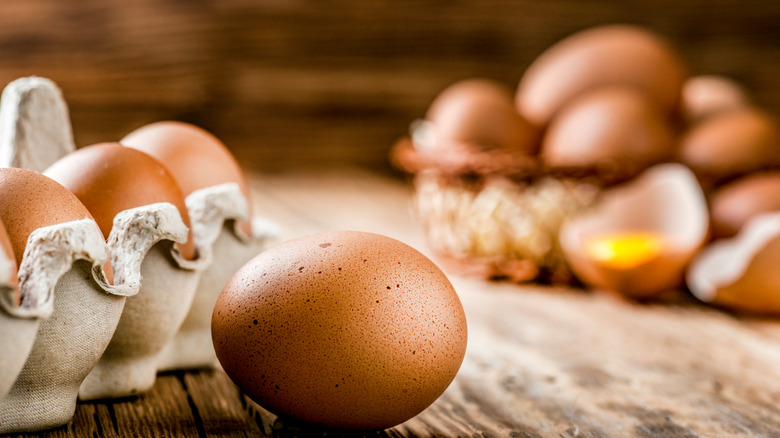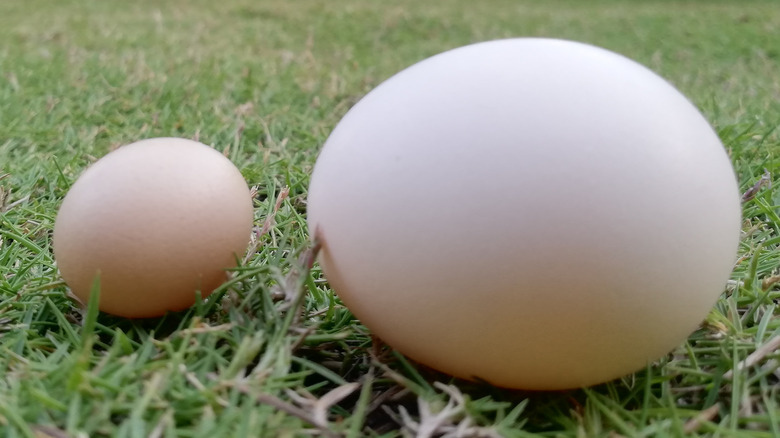Fairy Eggs Are The Little Surprise That May Be Hiding In Your Carton
Whether you prefer farm-fresh eggs or simply enjoy buying local goods, you may come across fairy eggs at one point or another. Fairy eggs are smaller-than-average chicken eggs, and contain no yolk — only whites.
As explained by TikTok user The Zen Hen and the Honeybee, fairy eggs are produced when a hen processes an egg too quickly. Several factors can cause fairy eggs, including environment and hormones. For instance, the hen laying fairy eggs could be suffering from stress or malnutrition, or she simply might not be at peak reproductive age yet. On the other end of the spectrum, the hen could also be nearing the end of her reproductive years. That being said, fairy eggs are safe to eat. The Zen Hen says her personal preference is to give her hens' fairy eggs to her dogs, but you can boil or scramble fairy eggs just as you would any other egg.
Fairy eggs skip a few steps in the egg-making process
Regardless of the reason a hen produces a fairy egg — be it stress, hormones, malnutrition, or age — the process is nearly identical to that of a regular egg. Without getting into the minutiae, normal egg production begins when a hen releases a yolk from her oviduct. Her shell gland activates, encasing the yolk in layers of membrane. However, in the case of a fairy egg, the hen's shell gland mistakes other reproductive tissue for a yolk. As a result, the tissue itself becomes encased in layers of membrane, with no yolk to be found when someone later cracks open the egg.
As mentioned previously, fairy eggs are safe to eat as they're essentially just egg whites. They're really just saving you from having to separate egg yolks from whites, and that's always appreciated. So, if you happen to get your hands on some fairy eggs, rather than pitch them, make something tasty with those extra egg whites!

